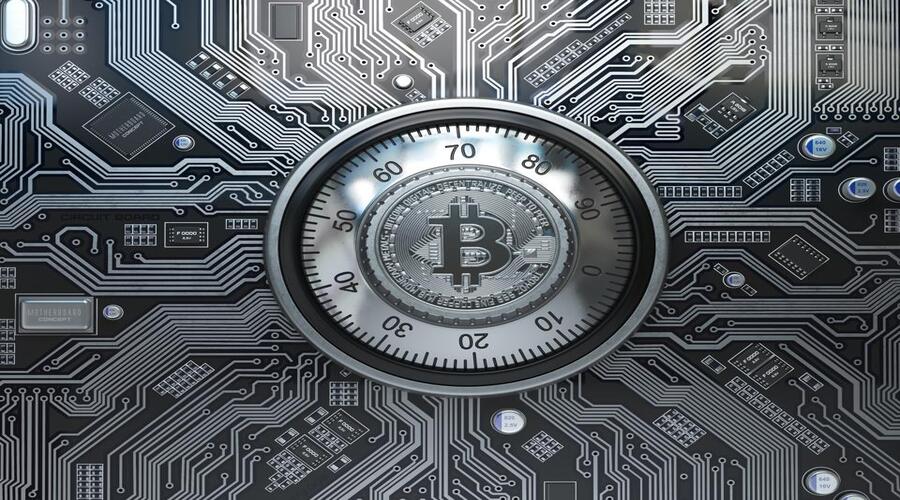Bitcoin has gained immense popularity in recent years, and as its value continues to rise, so does the need for secure storage and protection. Storing Bitcoin securely is crucial to protect it from theft, loss, or damage. In this article, we will discuss some effective methods for securely storing and protecting your Bitcoin.
Hardware Wallets
Hardware wallets are a popular option for storing Bitcoin securely. They are physical devices that store your private keys offline, making them resistant to hacking and malware attacks. Hardware wallets also provide an extra layer of security by requiring physical confirmation before any transactions can be made. Some popular hardware wallets include Ledger Nano S, Trezor, and KeepKey.
Paper Wallets
Paper wallets are another option for securely storing Bitcoin. A paper wallet is a printed copy of your public and private keys that you can keep offline. Since paper wallets are not connected to the internet, they are immune to online threats such as hacking and malware attacks. However, paper wallets are susceptible to physical damage, theft, or loss, so it is essential to keep them in a safe and secure place.
Multi-Signature Wallets
Multi-signature wallets are wallets that require multiple parties to approve a transaction before it can be executed. This provides an extra layer of security as it prevents a single point of failure. For example, a multi-signature wallet may require two out of three signatures to approve a transaction. This means that even if one of the keys is compromised, the transaction cannot be executed without the other two keys.
Cold Storage
Cold storage refers to the practice of keeping your Bitcoin offline in a secure location. This can be achieved by storing your Bitcoin on a hardware wallet or paper wallet, or by using a dedicated computer that is not connected to the internet. Cold storage is an effective way to protect your Bitcoin from online threats, but it requires careful management to ensure that the Bitcoin remains accessible when needed.
Password Management
Password management is a critical aspect of securing your Bitcoin. Weak passwords can be easily guessed or hacked, putting your Bitcoin at risk. It is recommended to use a unique and strong password for your Bitcoin wallet and to enable two-factor authentication whenever possible. It is also essential to avoid using public Wi-Fi networks or unsecured computers when accessing your Bitcoin wallet.
Backups
Backing up your Bitcoin wallet is essential to protect your Bitcoin from loss or damage. Regular backups ensure that you can recover your Bitcoin in case of hardware failure or other issues. It is recommended to store backups in multiple secure locations, such as a hardware wallet or a paper wallet.
Updates and Security
It is crucial to keep your Bitcoin wallet software up to date to ensure that it is secure and protected against potential vulnerabilities. Regular updates also provide new features and improvements that can enhance the usability of your Bitcoin wallet.
Education
Finally, educating yourself on the best practices for storing and protecting your Bitcoin is crucial to avoid potential security risks. It is recommended to research different storage options and security measures and to keep up-to-date with the latest developments in Bitcoin security.
Consider using a passphrase
A passphrase is a unique phrase or sentence that you can use to add an extra layer of security to your Bitcoin wallet. It is recommended to use a long and complex passphrase that is not related to any personal information. Some Bitcoin wallets allow you to use a passphrase in addition to a password, making it even more secure.
Keep your private keys offline
One of the key advantages of hardware wallets and paper wallets is that they keep your private keys offline, making them less vulnerable to hacking and malware attacks. It is essential to keep your private keys secure and not share them with anyone.
Test your backups
It is recommended to test your backups regularly to ensure that they are working correctly. Testing your backups can help you avoid potential issues and ensure that you can recover your Bitcoin in case of a hardware failure or other problems.
Use a dedicated computer for Bitcoin transactions
If you frequently make Bitcoin transactions, it may be a good idea to use a dedicated computer that is not used for other purposes. This can help minimize the risk of malware or other security threats.
Consider using a multi-sig setup
A multi-sig setup is a method of adding an extra layer of security to your Bitcoin wallet by requiring multiple signatures to authorize transactions. For example, you could set up a wallet that requires two out of three signatures to authorize transactions. This can help prevent a single point of failure and make it more difficult for hackers to steal your Bitcoin.
Keep your wallet software up to date
Keeping your Bitcoin wallet software up to date is crucial to ensure that it is secure and protected against potential vulnerabilities. Regular updates also provide new features and improvements that can enhance the usability of your Bitcoin wallet.
Use a reputable wallet provider
When choosing a Bitcoin wallet, it is essential to use a reputable and trusted provider. Do your research and read reviews before selecting a wallet provider.
Consider diversifying your storage methods
Consider diversifying your storage methods to minimize risk. For example, you could store a portion of your Bitcoin on a hardware wallet, another portion on a paper wallet, and a third portion on a multi-sig wallet. This can help ensure that your Bitcoin remains safe even if one storage method is compromised.
Use two-factor authentication
Two-factor authentication (2FA) is a security measure that adds an extra layer of protection to your Bitcoin wallet. It requires you to provide two pieces of information to access your wallet, such as a password and a code sent to your phone or email. By enabling 2FA, you can help prevent unauthorized access to your Bitcoin wallet.
Use cold storage for long-term storage
Cold storage refers to storing your Bitcoin offline, such as on a hardware wallet or a paper wallet. This method is considered the most secure way to store your Bitcoin for the long-term as it reduces the risk of hacking and other online attacks. If you plan to hold onto your Bitcoin for an extended period, consider using cold storage.
Don’t store all your Bitcoin in one place
To minimize the risk of losing all your Bitcoin in case of a security breach, it’s essential not to store all your Bitcoin in one place. Instead, consider spreading your Bitcoin across different wallets, including hardware wallets, paper wallets, and software wallets. This way, even if one wallet is compromised, you won’t lose all your Bitcoin.
Use a strong password
When creating a password for your Bitcoin wallet, make sure it’s strong and unique. Avoid using easy-to-guess passwords, such as “123456” or “password,” and don’t reuse passwords across different accounts. A strong password should be long, complex, and contain a mix of letters, numbers, and special characters.
Keep your software up-to-date
Bitcoin wallet software is continually updated to fix bugs and improve security. Make sure you regularly update your wallet software to the latest version to ensure that your Bitcoin wallet remains secure.
Use a separate email address for your Bitcoin wallet
Using a separate email address for your Bitcoin wallet can help prevent hackers from gaining access to your wallet through a compromised email account. Make sure to use a strong password and two-factor authentication for your email account.
Be wary of phishing scams
Phishing scams are a common tactic used by hackers to steal Bitcoin. They often involve sending fake emails or creating fake websites that look like legitimate Bitcoin exchanges or wallet providers. Make sure always to double-check the URL and email sender before entering any sensitive information, and avoid clicking on suspicious links.
By following these tips, you can help ensure that your Bitcoin remains safe and secure. Remember, protecting your Bitcoin requires vigilance and active measures to mitigate risks.
Conclusion
In conclusion, securely storing and protecting your Bitcoin is crucial to avoid potential security risks. By following the best practices discussed in this article and being vigilant about security, you can help ensure that your Bitcoin remains safe and secure.
I am a highly experienced and successful cryptocurrency author. I have been writing about cryptocurrencies for over 5 years and have seen the industry grow and change immensely. I am well-versed in all things crypto and blockchain, and it can be seen in my writings. My goal is to educate others about this fascinating industry, and to help them make informed investment decisions. I believe that cryptocurrencies are the future of finance, and I am eager to share my knowledge with as many people as possible.




